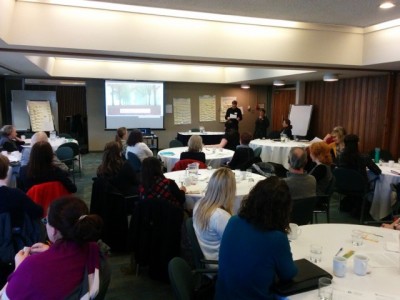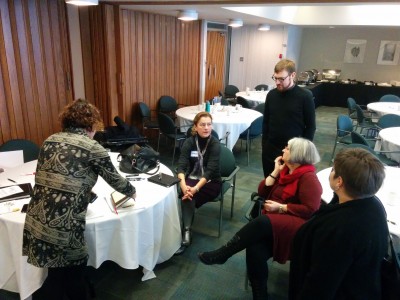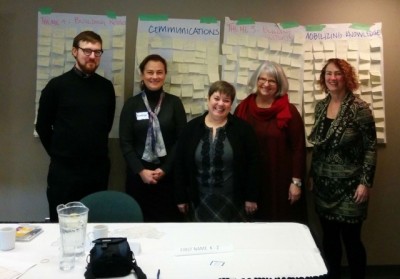by Carly Foubert, CFICE Volunteer
The Office of Community-Based Research at the University of Victoria is a partner of CFICE’s Knowledge Mobilization (KMb) hub. For the past three and a half years they have been working in conjunction with local community organizations, university students, and faculty on a project titled “Embracing community outcomes: Using student engagement as knowledge mobilization”. Recently they have completed and submitted an article, titled Knowledge Mobilization through Student Community Engagement, to the Canadian Alliance for Community Service-Learning (CACSL) for publication as part of CACSL’s 2016 conference book.
The focus they have taken in this study is to determine how university students can be used as knowledge mobilizers, or liaisons, between the community organizations and university instructors and administers involved in community-campus partnerships. In short, the study seeks to understand how every party involved can benefit more from better knowledge mobilization during co-operative education placements and practicums.
“One of the things is recognizing that the students have a very important role to play in knowledge. One of the findings [of the research] is that we need to pay much closer attention to communication across the sectors; particularly the university needs to be better aware of the needs of community organizations and responsive to those needs,” said Kathy Sanford, a co-applicant for the project and a professor with the faculty of Education at the University of Victoria.
For the study, interviews were conducted with students and community members at different levels of community organizations. Practicum and co-op coordinators, and other people on campus who have been involved with community organizations and placements, were also included in data collection. The interviews were then coded, analyzed, and key themes identified.

A researcher gives a presentation at University of Victoria’s focus group event on February 3, 2016. ©Kathy Sanford
With the article completed, Kathy said, “We’re deciding now where we want to take it, not just in terms of research, because I’m not sure where that is actually going, but for our own institution and our own benefits.”
The researchers and university participants have found the meetings held with community organizations of considerable value. Kathy noted the enthusiasm that came from having these conversations and sharing in mobilizing knowledge between different organizations.
“We’ve talked about things like having a database that can connect community organizations with the needs of the students in our programs in different ways; that [way] we can make the university more accessible to people in the community.”

University of Victoria team members debrief after their focus group event on February 3, 2016. ©Kathy Sanford
Many programs at University of Victoria have a practicum experience attached to them and they are looking at how they can offer experiential learning to every student. To achieve this, Kathy said, “We need to have better communications between community organizations and the people who are placing students in different community organizations so that…students are aware of the expectations of the organization and are able to be as best prepared as they can be in going out to those placements.”
Research aims to make a difference in communities and knowledge mobilization aims to make that research accessible. The results of this study can offer solutions to making current research more accessible and can offer ideas regarding ways to improve community-university partnerships.
“How can we be aware of the needs of each other, like a symbiotic kind of relationship,” Kathy asked of the study findings. “How do we better develop positive relationships with people, and then find ways to do placements that are mutually supportive and not just placements that are of expedience and trying to fill slots, but actually having more face-to-face personal connection?”
According to Kathy, the answers include recognizing the needs of community organizations and allowing them space to share them, developing mutual respect between partners, and valuing the knowledge that community agency workers have. As Kathy reiterated, “All knowledge is valuable and valued.”
For more information about this study, please contact CFICE.
